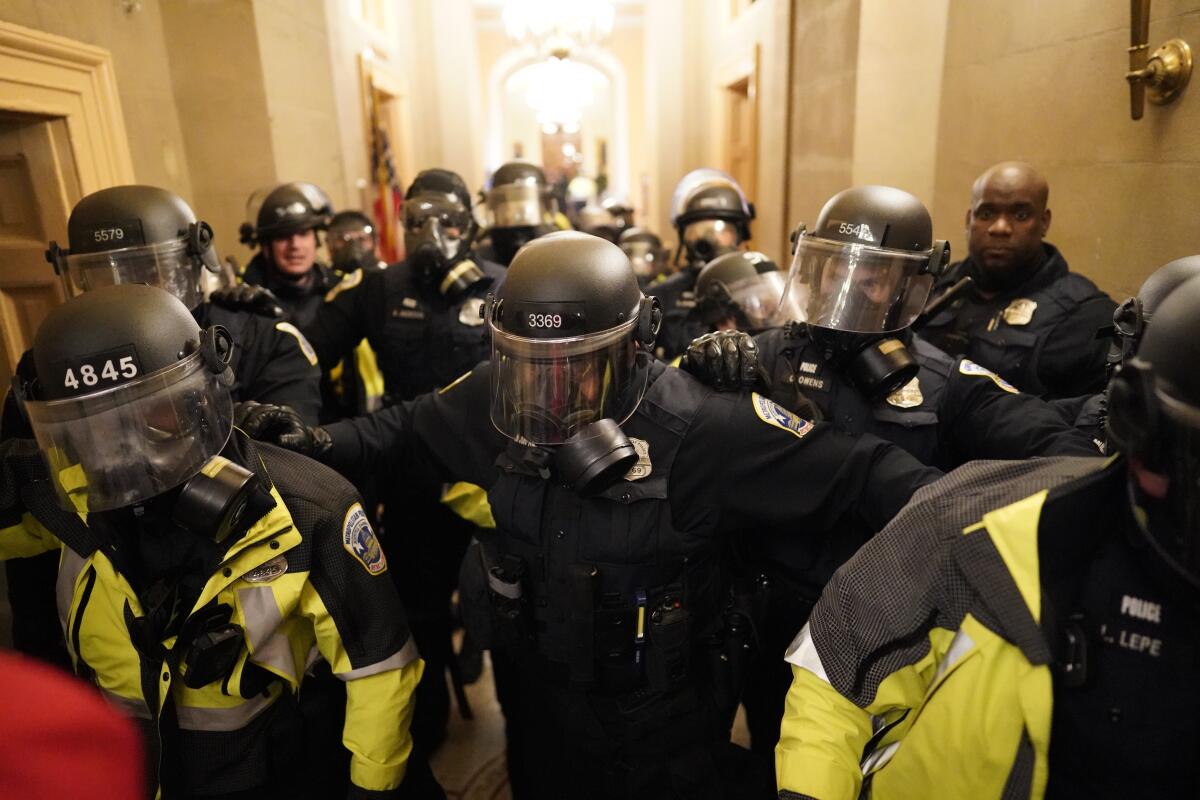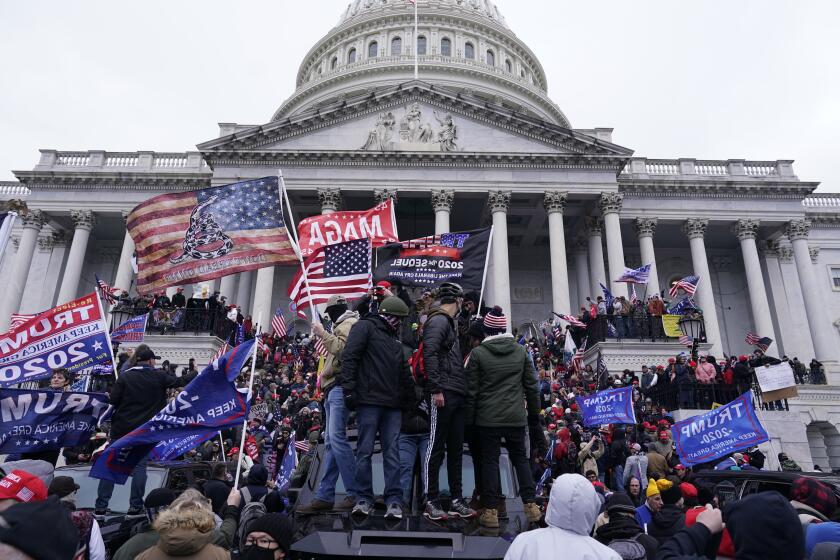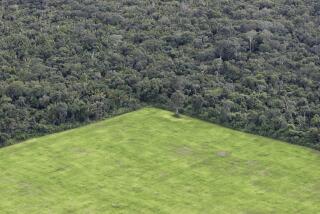Latin America watches with alarm as extremists breach U.S. Capitol

In Latin America, a region not unfamiliar with assaults on democracy, the attack by pro-Trump extremists on the U.S. Capitol in Washington on Wednesday prompted widespread alarm —and dark reminders of political upheaval in the region.
The phrase “GolpeDeEstadoEnEEUU,” (“coup d’état in the United States”), was trending on Twitter as analysts and others likened the political chaos in Washington to historical and contemporary unrest in their homelands.
“The U.S. became part of Latin America,” Lester Ramírez, of the Assn. for a More Just Society, a nongovernmental social justice organization in Honduras, said in an interview.
Scenes of the violent mob in Washington called to mind a 2009 coup in the Central American nation that forced President Manuel Zelaya into exile. The clashes also recalled protests that erupted after Honduran President Juan Orlando Hernández was reelected in a 2017 vote marred by allegations of fraud — but called legitimate by President Trump’s administration.
“Authoritarianism is the rule here,” Ramírez said, and now the United States was getting a taste.
Trump supporters gather in the U.S. capital to protest the ratification of President-elect Joe Biden’s electoral college victory over President Trump.
Future regional leaders, he said, may respond to U.S. critiques of their democratic processes with incredulity: “You don’t have moral authority. Your country has serious problems. How are you going to say what I’m doing is bad?”
For many in Latin America, there was considerable irony in the outbreak of political tumult in a nation often accused of fomenting coups throughout the region.
The leftist Venezuelan government, which the Trump administration has openly sought to remove from power, said in a statement that “with this unfortunate episode, the United States is experiencing what it has generated in other countries with its policies of aggression.”
Tweeted Chilean academic Boris Yopo H.: “Trump’s legacy: The United States, Banana Republic, 21st Century.”
President-elect Joe Biden acknowledged the damage to the U.S. global reputation. “The world is watching,” he said during a speech addressing the takeover of the U.S. Capitol. “Think of what the rest of the world is looking at.”
Photos circulating on social media of bearded extremists marauding through the offices of U.S. Representatives prompted tongue-in-cheek tweets that “Conan the Barbarian” and his minions had seized the hallowed halls of Congress.
In Peru, the scenes in Washington evoked for many the pandemonium of 1992, when President Alberto Fujimori, a right-wing populist, dissolved the national congress, justifying the coup as a move against rebels and drug traffickers. Fujimori was later imprisoned for human rights violations.
“Today Trump appears a lot like Alberto Fujimori,” tweeted Peruvian journalist José Alejandro Godoy. “The extreme right is the major threat against democracy in the world. And be careful, it has its followers here.”
In El Salvador, the U.S. bedlam recalled for some the scene last year in San Salvador, when President Nayib Bukele — a close U.S. ally and Trump admirer — dispatched troops to congress in what critics called an attempted takeover of the legislative branch.
“Trump and Bukele are very similar in that both came to power via democratic paths, but, once in office, both began to attack democratic institutions,” Celia Medrano, a political analyst in San Salvador, said in an interview. “Both want to perpetuate themselves in power by force.”
In Chile, some observers saw parallels between what happened on Capitol Hill and the bombing of La Moneda presidential palace in Santiago, the capital, on Sept. 11, 1973, when Gen. Augusto Pinochet led the coup that overthrew President Salvador Allende.
But Chilean President Sebastian Piñera, a center-right billionaire, said that Chile “has confidence in the strength of U.S. democracy to guarantee the rule of law and rights.”
Critics throughout the region assailed Trump backers.
“What do our pro-Trump compatriots say at this moment” tweeted Carlos F. Galán, an ex-senator in Colombia, a close U.S. ally. “All quiet. ... Extremes are the principal threat against democracy.”
Some polls have shown a decline in U.S. popularity in much of Latin America since Trump took office. Still, Wednesday’s disorder in Washington surprised many observers accustomed to viewing the United States as a standard-bearer for democracy and the peaceful transfer of power — even if Washington’s foreign policy often backed non-democratic regimes in Latin America.
Carlos Bravo Regidor, a political analyst and a professor at CIDE, a public research center in Mexico City, said the violence in Washington had exposed the United States as “just another country where there are political disruptions.”
“The masks are off,” he said.
Special correspondents Cecilia Sánchez and Liliana Nieto del Río in Mexico City, Alexander Renderos in San Salvador, Andrés D’Alessandro in Buenos Aires, Adriana León in Lima, Peru, Jorge Poblete in Santiago, and Mery Mogollón in Caracas, Venezuela, contributed to this report.
More to Read
Sign up for Essential California
The most important California stories and recommendations in your inbox every morning.
You may occasionally receive promotional content from the Los Angeles Times.












